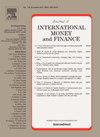Stress testing climate risk: A network-based analysis of the Chinese banking system
IF 2.8
2区 经济学
Q2 BUSINESS, FINANCE
引用次数: 0
Abstract
Assessing the impact of climate risks on the financial system is one of the most urgent issues currently. We build a network-based climate risk model to explain how a shock from climate policies translates into shocks in the banking system. Then, we conduct macroprudential stress tests on the Chinese banking system under various climate policy scenarios. We show that under the policy target of peaking the carbon in 2030 and CO2 concentration no more than 500 ppm in 2100, individual banks in China will face equity losses ranging from 1.93% to 14.03%, equivalent to an overall loss of 6.94% in 2025. When considering the electric power sector's adoption of green energy technologies, the adverse effects will be slightly mitigated. Our stress tests suggest that the implementation of climate policies should be gradual and consider potential economic impacts so that climate goals can be achieved without undue shocks to the economy.
气候风险压力测试:基于网络的中国银行系统分析
评估气候风险对金融体系的影响是当前最紧迫的问题之一。我们建立了一个基于网络的气候风险模型,以解释气候政策的冲击如何转化为银行体系的冲击。然后,我们对不同气候政策情景下的中国银行体系进行了宏观审慎压力测试。结果表明,在 2030 年达到碳排放峰值、2100 年二氧化碳浓度不超过 500ppm 的政策目标下,中国的单个银行将面临 1.93% 至 14.03% 的股本损失,相当于 2025 年 6.94% 的整体损失。如果考虑到电力行业采用绿色能源技术,不利影响将略有缓解。我们的压力测试表明,气候政策的实施应循序渐进,并考虑潜在的经济影响,以便在实现气候目标的同时不会对经济造成过度冲击。
本文章由计算机程序翻译,如有差异,请以英文原文为准。
求助全文
约1分钟内获得全文
求助全文
来源期刊

Journal of International Money and Finance
BUSINESS, FINANCE-
CiteScore
4.20
自引率
4.00%
发文量
141
期刊介绍:
Since its launch in 1982, Journal of International Money and Finance has built up a solid reputation as a high quality scholarly journal devoted to theoretical and empirical research in the fields of international monetary economics, international finance, and the rapidly developing overlap area between the two. Researchers in these areas, and financial market professionals too, pay attention to the articles that the journal publishes. Authors published in the journal are in the forefront of scholarly research on exchange rate behaviour, foreign exchange options, international capital markets, international monetary and fiscal policy, international transmission and related questions.
 求助内容:
求助内容: 应助结果提醒方式:
应助结果提醒方式:


